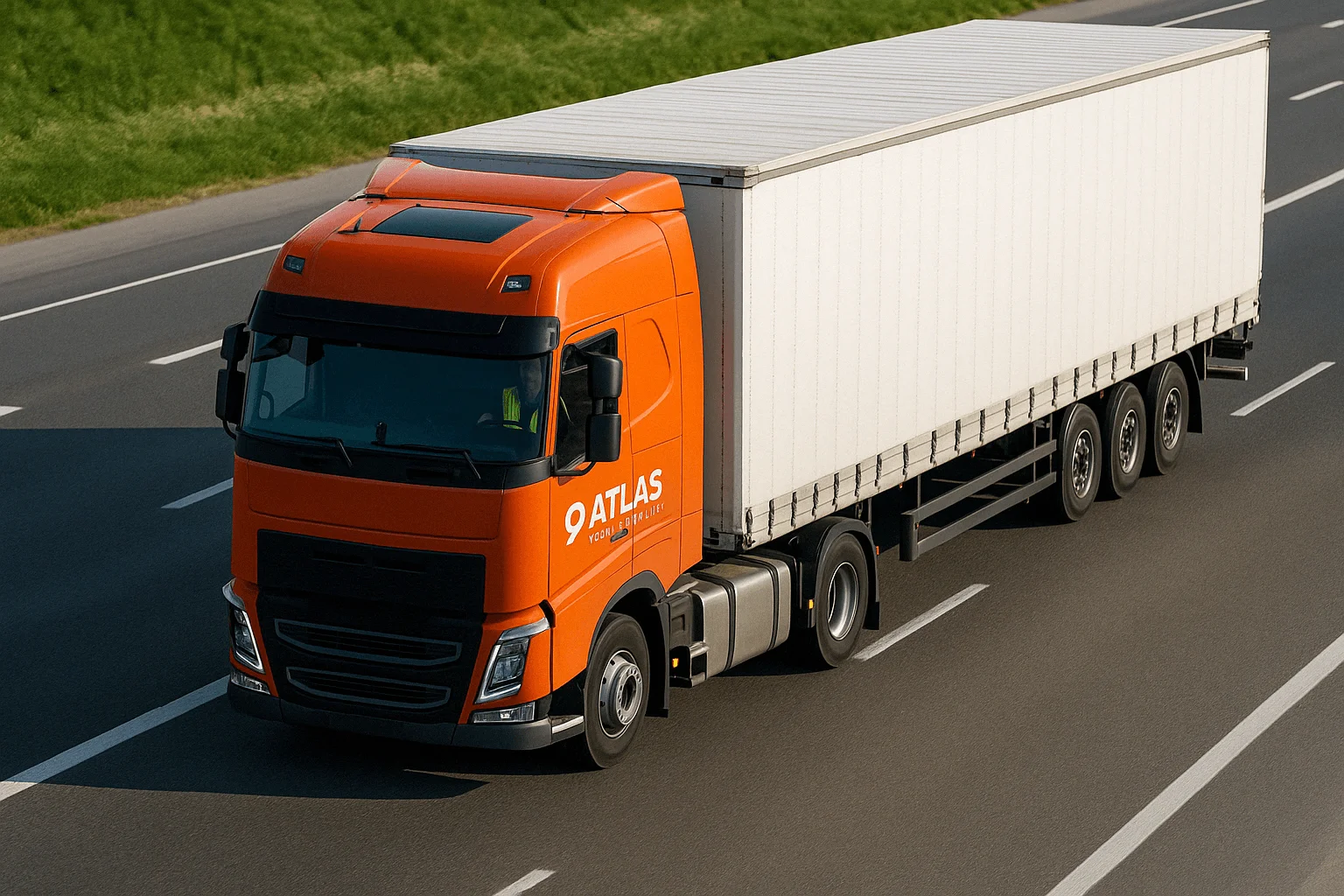UK and European Road Freight Trends and Challenges
Wednesday, April 16, 2025

Other News
-
-
The Rise of Road Freight in Asia and What It Means for Recruitment
Wednesday, April 16, 2025
-
Air Freight in the USA and What It Means for Hiring
Wednesday, April 16, 2025
-
Growth in Freight Demand and Hiring Across Mexico City’s Expanding Logistics Sector
Wednesday, April 16, 2025
-
Montreal Freight Activity and the Demand for Skilled Sales Professionals
Wednesday, April 16, 2025
-
Freight Movement and Hiring Trends in the Atlanta Logistics Market
Wednesday, April 16, 2025
-
How to Recruit Top Logistics Sales Professionals in Los Angeles
Wednesday, April 16, 2025
-
Recruiting Logistics Sales Professionals in Chicago’s Competitive Market
Wednesday, April 16, 2025
-
Recruitment Struggles in the USA as Budgets Tighten and Confidence Wavers
Wednesday, April 16, 2025
-
Global Supply Chain Struggles and How Businesses Are Adapting
Wednesday, April 16, 2025
-
Logistics Business Development Recruitment in New York
Wednesday, April 16, 2025
-
Trump Tariff Causing Global Freight Disruptions
Wednesday, April 16, 2025
-
Global Ocean Freight and Supply Chain Pressures
Wednesday, April 16, 2025
-
Transpacific Cargo Movements from the USA
Wednesday, April 16, 2025
-
Logistics Sales Recruitment in Florida
Wednesday, April 16, 2025
-
Strategies for a Changing Workforce
Wednesday, April 16, 2025
-
Why Contract Recruitment Is Gaining Ground in Logistics and Freight
Sunday, April 13, 2025
-
The Real Cost of a Bad Logistics Sales Hire
Friday, April 11, 2025
-
Why Freight Operations Managers Are in High Demand Globally
Tuesday, March 4, 2025
Freight Movement Between the UK and Europe
Road freight plays a crucial role in connecting the UK with its European neighbours, moving essential goods across borders every day. Since Brexit, however, the volume of freight carried by UK-registered vehicles to and from Europe has declined. Although some of this is due to post-pandemic adjustments, much of it reflects long-term shifts in the way goods are being transported.
France, the Netherlands, Germany, and Belgium remain key trading partners for the UK, with road freight the dominant method of transport for short-haul, high-volume shipments. From food and retail products to construction materials and medical supplies, road haulage has remained an essential part of bilateral trade flows.
At the same time, many UK hauliers have pulled back from international trips due to complex customs checks, driver availability, and lower margins on cross-border work. This has left room for European operators—particularly from Poland and the Baltic states—to pick up the slack, driving more volume into the UK from the continent.
Europe's High-Volume Road Freight Economy
Across the European Union, road freight remains the most widely used form of inland transport. Countries like Germany, Poland, Spain, and France are the biggest movers of goods by road, handling the majority of internal EU volumes. Much of this activity consists of domestic transport, but cross-border trade between member states is a major component of the market.
Poland, in particular, has emerged as a powerhouse in European road transport. Polish hauliers manage a large share of the EU's long-distance freight, especially in areas like cross-trade and cabotage, where trucks operate in countries other than where they're registered. These operations give Polish carriers a cost advantage, particularly in high-volume countries like Germany and France.
The type of freight moved is diverse. Agricultural products, beverages, raw materials, automotive parts, and e-commerce goods all flow through the road network daily. Reliable and affordable road freight has been essential to the smooth functioning of Europe’s internal market, particularly for just-in-time supply chains in manufacturing and food sectors.
Cabotage, Congestion and Operational Pressure
The EU’s cabotage regulations have allowed certain flexibility for operators to carry goods within member states, but they’ve also stirred up competition. Carriers from lower-cost countries like Poland and Romania have increasingly taken on domestic freight inside Western Europe, leading to tension with local operators and renewed calls for tighter enforcement of labour rules.
Infrastructure pressure is another ongoing concern. Key European freight corridors are congested, with bottlenecks at border crossings, rest stops, and entry points into major cities. Driver shortages, limited parking capacity, and fluctuating fuel prices are all compounding operational stress for hauliers and logistics providers trying to maintain reliability.
On the UK side, the effects of decoupling from the EU are still unfolding. While exports have remained relatively stable, imports from Europe are facing additional checks and delays. The government has introduced phased customs controls, but businesses continue to report disruptions—especially smaller firms with fewer resources to manage compliance.
Building Stronger Transport Networks
To stay competitive, companies operating in UK and European road freight are investing in route planning tools, warehouse consolidation, and real-time tracking. There’s also growing interest in low-emission vehicles and cleaner fuel options, as regulators continue to tighten environmental rules across the region.
At the heart of all this is people. The sector is crying out for experienced transport managers, international freight coordinators, and customs compliance professionals. Hiring and retaining this talent is now a strategic priority for firms that want to keep freight moving smoothly across borders.
At Atlas Global Talent, we help logistics companies recruit professionals who understand the ins and outs of UK and European road freight. Whether you're scaling up your domestic operations or need international logistics support, we connect you with candidates who know how to navigate complexity. With recruitment reach across the UK, Europe, USA, Canada, LATAM and Asia, we find talent where you need it most.

